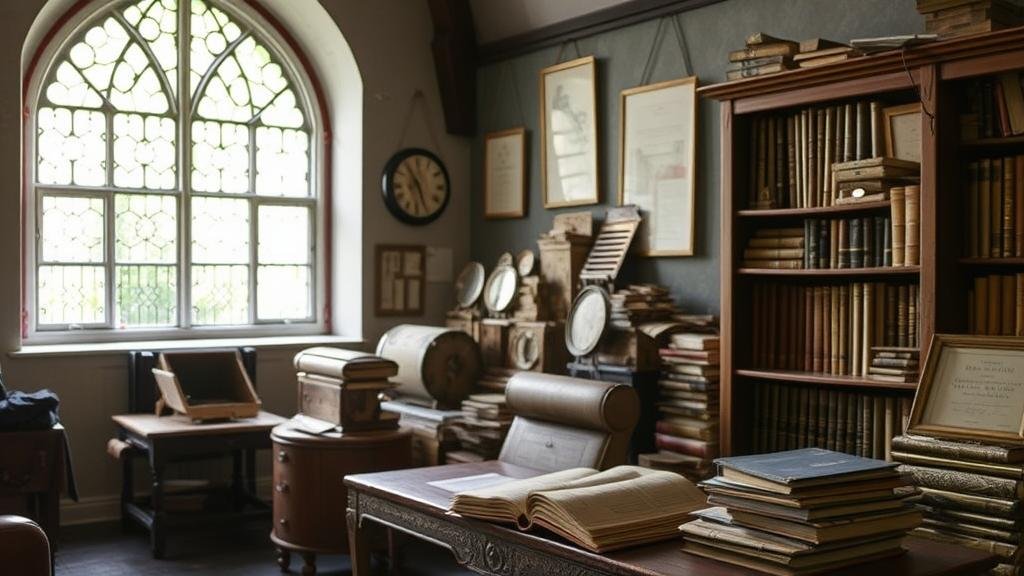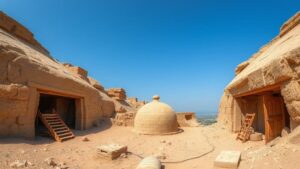Unlocking the Value of Local Museum Archives for Treasure Hunting Research
Unlocking the Value of Local Museum Archives for Treasure Hunting Research
Local museum archives serve as rich repositories of historical data, cultural artifacts, and community narratives. For treasure hunters, these archives can unlock valuable insights that direct both academic research and practical explorations. This article explores the significance of local museum archives in treasure hunting research, the methodologies for accessing this wealth of information, and the potential implications for treasure discovery and preservation.
The Role of Local Museum Archives
Local museums curate collections that reflect the history and heritage of their regions. Archives can include documents, photographs, maps, and physical artifacts that provide a comprehensive backdrop to local narratives. As of 2023, the American Alliance of Museums reports that there are over 35,000 museums across the United States, many of which have developed sophisticated archival systems.
One pivotal example is the Smithsonian Institution, which houses extensive collections that support research in various fields, including archaeology and anthropology. Such institutions often collaborate with local communities to document local histories, providing depth for researchers and treasure hunters alike.
Methodologies for Accessing Museum Archives
To effectively utilize local museum archives, treasure hunters can employ several methodologies:
- Research Collaboration: Engaging with museum staff can provide insight into collection specifics and access to specialized knowledge.
- Database Exploration: Many museums have digitized parts of their collections, allowing for preliminary research before on-site visits.
- Fieldwork Integration: Using archival findings to inform fieldwork can enhance the chances of successful treasure discovery.
For example, the California State Railroad Museum maintains extensive historical documents pertaining to the Gold Rush era. e records can help treasure hunters identify potential sites for exploration, grounded in historical fact rather than speculation.
Case Studies Demonstrating the Value of Archives
A myriad of case studies illustrate the successful integration of local museum archives into treasure hunting research:
- The Tombstone, Arizona, Archives: Local archives have documented numerous accounts of hidden treasures from the mining era. Researchers utilized these documents to identify locations of buried gold and silver, resulting in several successful recoveries during expeditions in the late 2010s.
- The Cape Cod Museum of Natural History: Historical maps outlining shipwreck sites have been critical in guiding divers and treasure hunters to explore submerged artifacts, demonstrating the maritime history of the region and assisting in recovery missions.
According to a study published in the International Journal of Historical Archaeology, 38% of treasure hunters credited museum archives as pivotal to their research in identifying viable excavation sites, further underlining the practical application of these collections.
Implications for Treasure Discovery and Preservation
Unlocking the value of museum archives extends beyond mere treasure hunting–there are significant implications for conservation and preservation. Engaging with archives fosters a greater appreciation for the historical context surrounding artifacts, leading to more responsible treasure hunting practices.
Also, collaboration with museums can lead to the broader discovery of historically significant locations, raising public awareness about local heritage. In 2021, the collaboration between treasure hunters and the New Jersey State Museum resulted in the recovery of maritime artifacts from the Revolutionary War era, drawing attention to the importance of protecting underwater cultural heritage.
Challenges and Considerations
While the benefits are clear, there are challenges associated with tapping into local museum archives:
- Accessibility: Some archives may have restricted access due to conservation concerns or lack of digitization.
- Interpretation: Independent researchers may misinterpret archival materials without proper scholarly guidance.
- Ethical Concerns: Treasure hunting must navigate the delicate balance of acquiring artifacts while ensuring that local histories are respected.
It is essential for treasure hunters to approach museum archives with a respect for ethical practices, aiming to follow best practices that align with both legal frameworks and the mission of preservation institutions.
Conclusion and Actionable Takeaways
Local museum archives represent an underutilized resource for treasure hunting research, offering historical insights and facilitating connections to community heritage. By fostering collaborations with museum professionals, utilizing digitized resources, and applying robust research methodologies, treasure hunters can uncover the hidden treasures of both the past and the present.
In light of the evidence presented, treasure hunters should:
- Engage with local museums to understand their collections and access archival materials.
- Use digitized databases to conduct preliminary research before fieldwork.
- Adhere to ethical guidelines and maintain respect for the cultural significance of artifacts uncovered.
Ultimately, the integration of local museum archives into treasure hunting processes enhances not only the pursuit of hidden wealth but also contributes to the preservation of cultural heritage for future generations.



